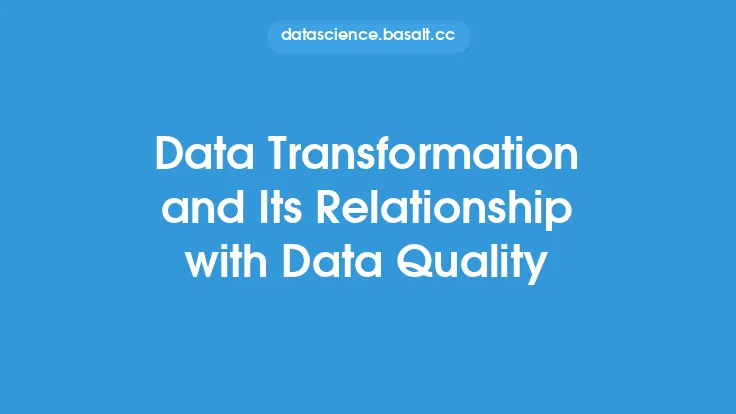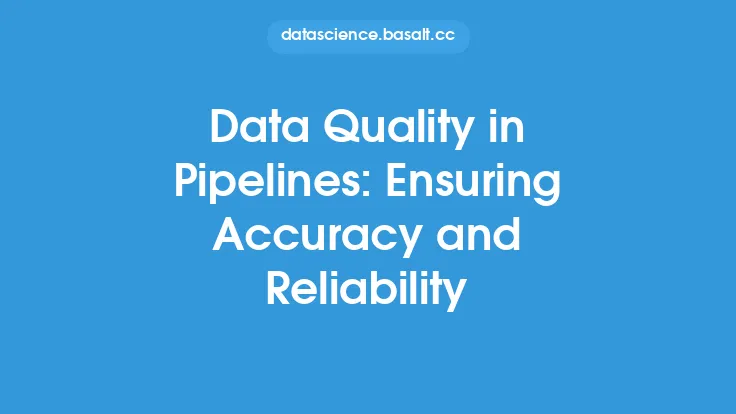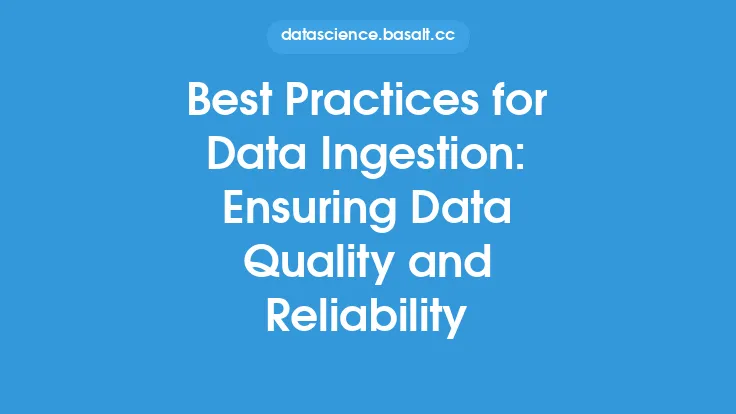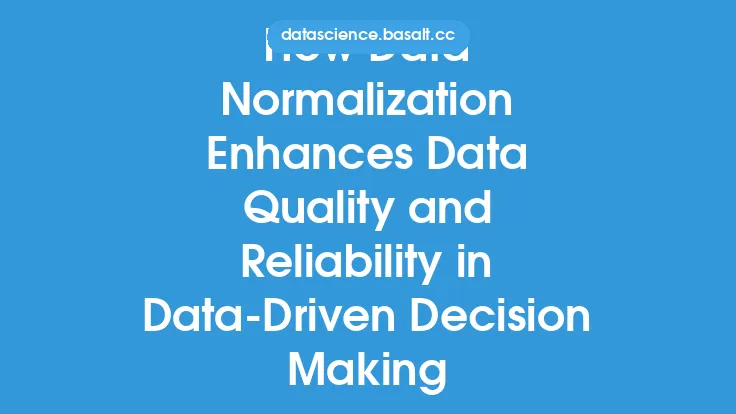Data accuracy is a fundamental aspect of data quality, and it plays a crucial role in ensuring that data is reliable and reusable. In the context of data quality, accuracy refers to the degree to which data correctly represents the real-world phenomena it is intended to measure. In other words, accurate data is data that is free from errors, inconsistencies, and biases, and that accurately reflects the underlying reality.
Introduction to Data Reliability
Data reliability, on the other hand, refers to the consistency and dependability of data over time. Reliable data is data that is consistent in its format, structure, and content, and that can be trusted to provide accurate and consistent results. Data reliability is closely related to data accuracy, as accurate data is a necessary condition for reliable data. However, reliability also depends on other factors, such as data completeness, consistency, and timeliness.
Relationship Between Data Accuracy and Data Reliability
The relationship between data accuracy and data reliability is complex and bidirectional. On the one hand, accurate data is a necessary condition for reliable data, as errors and inconsistencies in the data can lead to unreliable results. On the other hand, reliable data is also a necessary condition for accurate data, as inconsistent or incomplete data can lead to inaccurate conclusions. Furthermore, data reliability can also impact data accuracy, as reliable data is more likely to be accurate and consistent over time.
Data Reusability and Its Importance
Data reusability refers to the ability to use data for multiple purposes and in multiple contexts. Reusable data is data that is well-documented, well-structured, and easily accessible, and that can be easily integrated with other data sources. Data reusability is closely related to data accuracy and reliability, as accurate and reliable data is more likely to be reusable. Furthermore, reusable data can also improve data accuracy and reliability, as it can be easily verified and validated against other data sources.
Factors Affecting Data Accuracy and Reliability
There are several factors that can affect data accuracy and reliability, including data collection methods, data storage and management practices, data processing and analysis techniques, and data quality control measures. Data collection methods, such as surveys, interviews, and observations, can introduce errors and biases into the data, while data storage and management practices, such as data warehousing and data governance, can impact data consistency and completeness. Data processing and analysis techniques, such as data mining and machine learning, can also impact data accuracy and reliability, while data quality control measures, such as data validation and data cleansing, can help to detect and correct errors.
Technical Aspects of Data Accuracy and Reliability
From a technical perspective, data accuracy and reliability can be measured using various metrics and techniques, such as data profiling, data validation, and data certification. Data profiling involves analyzing data to identify patterns, trends, and anomalies, while data validation involves checking data against a set of rules and constraints to ensure that it is accurate and consistent. Data certification involves verifying the accuracy and reliability of data against a set of standards and criteria, and providing a formal certification or seal of approval.
Data Standards and Governance
Data standards and governance play a critical role in ensuring data accuracy and reliability. Data standards, such as data formats and data structures, can help to ensure that data is consistent and comparable across different sources and systems. Data governance, on the other hand, involves establishing policies, procedures, and controls to ensure that data is managed and used in a responsible and ethical manner. Data governance can include data quality control measures, such as data validation and data cleansing, as well as data security and access controls to prevent unauthorized access or misuse.
Best Practices for Ensuring Data Accuracy and Reliability
There are several best practices that can help to ensure data accuracy and reliability, including data quality control measures, data validation and verification, data documentation and metadata management, and data storage and management practices. Data quality control measures, such as data validation and data cleansing, can help to detect and correct errors, while data validation and verification can help to ensure that data is accurate and consistent. Data documentation and metadata management can help to provide context and meaning to the data, while data storage and management practices, such as data warehousing and data governance, can help to ensure that data is consistent and accessible.
Conclusion
In conclusion, data accuracy and reliability are fundamental aspects of data quality, and they play a crucial role in ensuring that data is reusable and trustworthy. The relationship between data accuracy and reliability is complex and bidirectional, and it depends on various factors, such as data collection methods, data storage and management practices, and data quality control measures. By understanding the technical aspects of data accuracy and reliability, and by following best practices for data quality control and governance, organizations can help to ensure that their data is accurate, reliable, and reusable, and that it provides a solid foundation for informed decision-making and business success.





